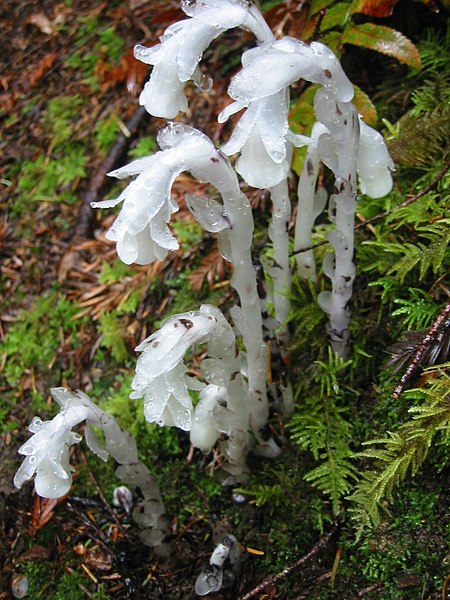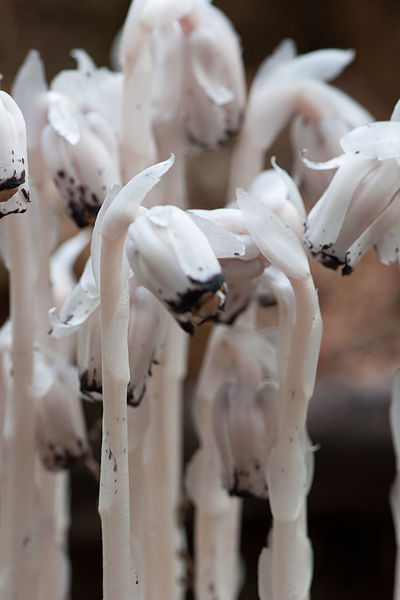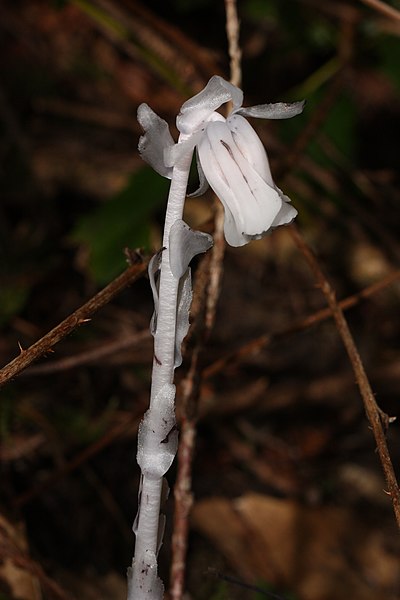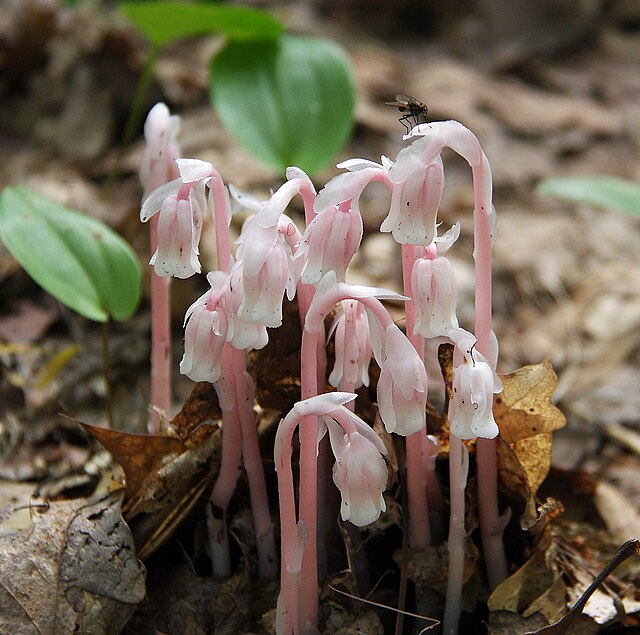Monotropa uniflora, also known as ghost plant, ghost pipe, or Indian pipe, is an herbaceous perennial flowering plant native to temperate regions of Asia, North America, and northern South America, but with large gaps between areas. The plant is waxy white, but some specimens have been described as having black flecks or pale pink coloration. Rare variants may have a deep red color. The name "Monotropa" is Greek for "one turn" and "uniflora" is Latin for "one flowered" as there is one sharply curved stem for each single flower. M.uniflora is commonly found growing in clumps of 2 or more, with its fungal source nearby.
Monotropa uniflora
M. uniflora
Stem detail
The alternate leaves
Myco-heterotrophy is a symbiotic relationship between certain kinds of plants and fungi, in which the plant gets all or part of its food from parasitism upon fungi rather than from photosynthesis. A myco-heterotroph is the parasitic plant partner in this relationship. Myco-heterotrophy is considered a kind of cheating relationship and myco-heterotrophs are sometimes informally referred to as "mycorrhizal cheaters". This relationship is sometimes referred to as mycotrophy, though this term is also used for plants that engage in mutualistic mycorrhizal relationships.
Monotropa uniflora, an obligate myco-heterotroph known to parasitize fungi belonging to the Russulaceae.
Myco-heterotrophic roots of Monotropa uniflora with Russula brevipes mycelium






